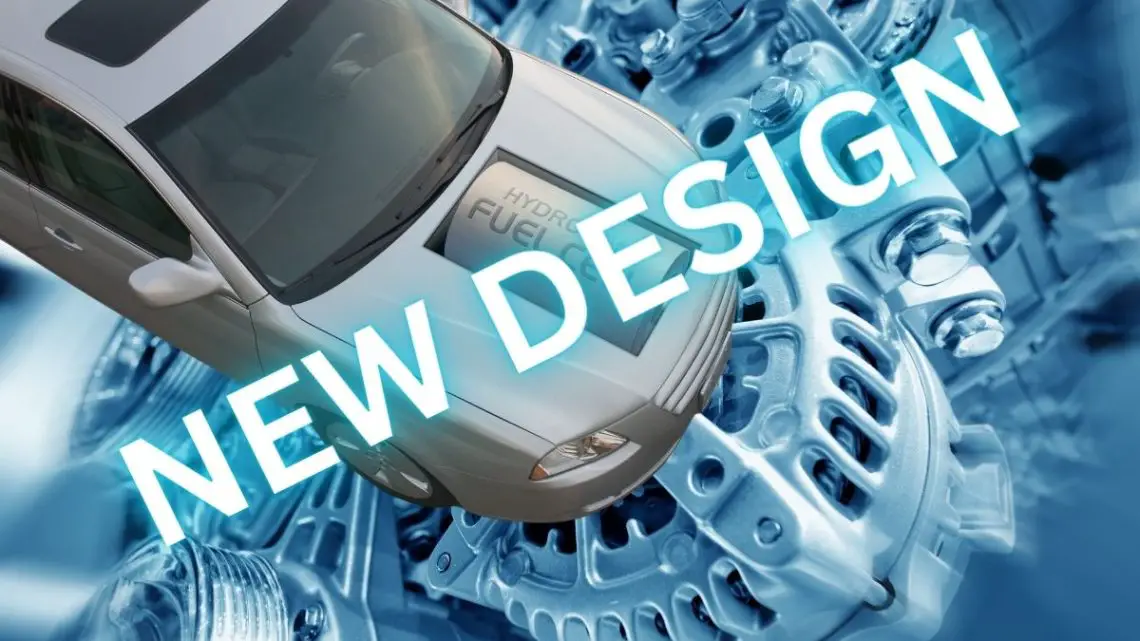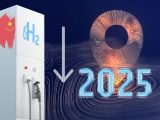
IE’s new hydrogen fuel cell is the smallest and most powerful for passenger cars
April 2, 2024British company, Intelligent Energy, may have unveiled the clean future for cars.
A leading fuel cell developer and manufacturer based in the UK, Intelligent Energy (IE), has revealed its new hydrogen fuel cell system for passenger vehicles. This system could be the breakthrough the global passenger car market needs to realize a zero-emission future. The reason? IE’s brand new H2 system is smaller and more powerful than any other solution on the market.
A first-of-its-kind for the passenger vehicle sector.
The new and patented hydrogen fuel cell system, known as IE-DRIVE™, has been purposefully designed with car manufacturers in mind. It is a first-of-its-kind single stack platform that includes an electronical control unit, heat exchanger, and Balance of Plant (BOP).
The IE’s new and revolutionary hydrogen fuel cell system reportedly offers greater benefits over other fuel cells developed by large automotive groups and their third-party fuel cell suppliers.
A small, powerful, turnkey, and commercially-viable hydrogen fuel cell system.
The key benefits of Intelligent Energy’s DRIVE hydrogen fuel cell system include:
- Turnkey – It’s a complete hydrogen fuel cells system shaped like a traditional car engine. With its fuel cell stack, electronic control unit, heat exchanger and BOP, it’s a true turnkey solution for car manufacturers.

- Smaller size – The fuel cell system is equipped with IE’s patented direct water injection tech. This allows the heat exchanger to be as much as 30% smaller than other solutions at equal net power output. A smaller heat exchanger also makes vehicle packaging easier and benefits the design of the fuel cell vehicle, especially when it comes to the vehicle’s hood height and improved visibility for the diver.
- Greater power – the IE-DRIVE™ fuel cell stack is capable of 157 kilowatt gross electrical power. This makes it the most powerful single stack application currently available for the passenger car market.
- Commercially-viable – IE predicts that its fuel cells system will cost about £100 ($125) per kilowatt by 2030, which will make it cheaper than battery electric vehicles (BEVs) and more comparable to internal combustion engines (ICEs).
The tech is ready to roll out.
So far, IE’s hydrogen fuel cell system has powered an SUV provided by Changan UK, at a lunch event recently held at Intelligent Energy’s Loughborough headquarters. The company says it is now ready to roll its tech out to the passenger car market in partnership “with suitable car manufacturers.”
H2 tech overcoming challenges faced by EVs.
 While many believe that EVs are the future of zero-emission vehicles, BEVs are not without their challenges. The primary challenges faced by BEVs include their reliability on limited natural resource, long battery charging time, limited vehicle range, and limited electric grid capacity. While hydrogen fuel cells have their own set of challenges – most having to do with cost and lack of infrastructure – a hydrogen fuel cell can be as low-cost to produce as ICEs and be made from recycled and recyclable materials. With these benefits, in the long run, hydrogen fuel cells could prove to be the more sustainable zero-emission option for passenger vehicles.
While many believe that EVs are the future of zero-emission vehicles, BEVs are not without their challenges. The primary challenges faced by BEVs include their reliability on limited natural resource, long battery charging time, limited vehicle range, and limited electric grid capacity. While hydrogen fuel cells have their own set of challenges – most having to do with cost and lack of infrastructure – a hydrogen fuel cell can be as low-cost to produce as ICEs and be made from recycled and recyclable materials. With these benefits, in the long run, hydrogen fuel cells could prove to be the more sustainable zero-emission option for passenger vehicles.
Ready to test your knowledge on the most abundant element in the universe? Take our fun and engaging Hydrogen Quiz now!



 HFN News is your leading source for fresh hydrogen and renewable energy updates. Amid the fast-paced growth of hydrogen companies, we provide top-notch news and insights about this exciting sector. Our coverage spans from hydrogen cars to global sustainable initiatives, and we highlight the latest in green jobs and developing hydrogen hubs. We invite you to share your local hydrogen news and explore today’s renewable energy job listings on our site. Thanks for choosing HFN News as your trusted guide to the hydrogen and renewable energy world!
HFN News is your leading source for fresh hydrogen and renewable energy updates. Amid the fast-paced growth of hydrogen companies, we provide top-notch news and insights about this exciting sector. Our coverage spans from hydrogen cars to global sustainable initiatives, and we highlight the latest in green jobs and developing hydrogen hubs. We invite you to share your local hydrogen news and explore today’s renewable energy job listings on our site. Thanks for choosing HFN News as your trusted guide to the hydrogen and renewable energy world!

Alicia, I appreciated your article and am a big believer in hydrogen. We are Kontak Hydrogen Storage and have patented a device for removing hydrogen from anhydrous ammonia. This allows hydrogen to be generated on-board a vehicle from a 7 BAR storage tank. Ammonia fueling stations can be installed for 5% of the cost of compressed or liquid hydrogen. Refueling times are less than 3 minutes for a car and 5 minutes for an HD truck. For eVTOL aircraft, the aircraft would get lighter as it flies. Fuel cells and our device far outperform batteries.